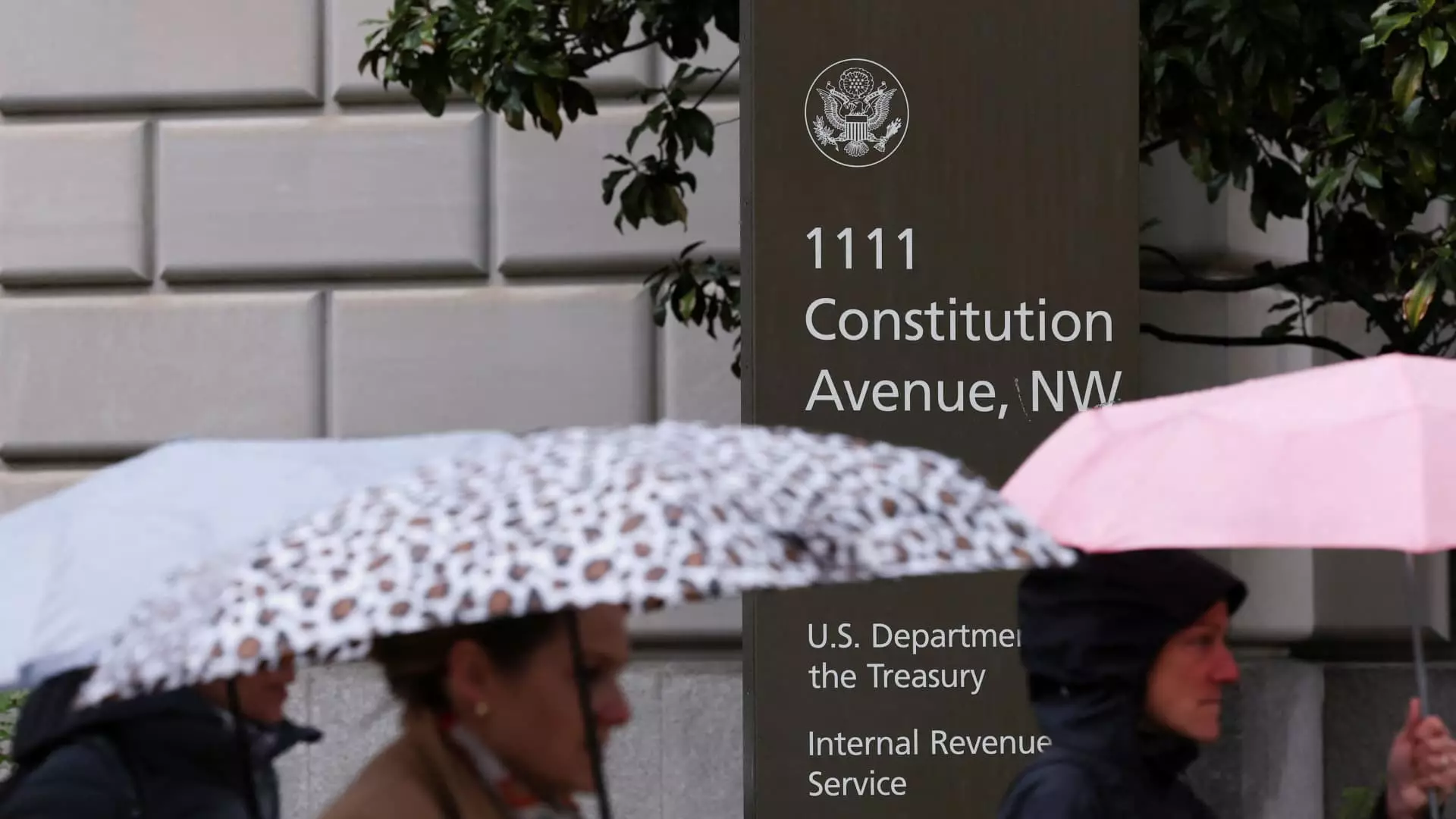In a fiscal climate where the stakes are high and the affluent have much to lose, the recent turmoil within the IRS raises significant concerns about tax enforcement and equity. The collapse of robust taxation measures, particularly affecting the wealthiest Americans, signals an alarming shift that could undermine decades of progress in ensuring fairer contributions from those who can afford to pay more. As funding for the IRS dwindles and staff cuts accelerate, the very fabric of tax accountability is at risk of unraveling.
The Disintegration of IRS Accountability
In early 2024, the IRS was poised to transform its approach to accountability and tax enforcement with an infusion of $80 billion approved by Congress. Among its new recruits was Wesley Stanovsek, a promising young tax expert specializing in complex structures such as S-corporations and partnerships. Stanovsek’s premature dismissal, along with other young talent, represents more than a missed opportunity for the agency; it brings into focus the critical cases they were handling, including investigations into wealthy sports team owners. These abrupt terminations, compounded by systemic staff reductions, create a void that will likely benefit affluent taxpayers by significantly reducing scrutiny of their financial dealings.
When Stanovsek was let go, cases he was handling were abandoned due to a lack of personnel. “They’ll most likely be closed with no change,” he shared, highlighting an inevitable trend that raises alarms among tax professionals. The chaotic staffing situation means a leaner agency is faced with potentially billions in lost tax revenue as important investigations and audits grind to a halt.
A Reversal of Progress in Tax Fairness
Historically, efforts have been made to hold high-income earners accountable for their tax obligations. Under the Biden administration, the IRS had made strides to increase audits among those earning over $10 million a year, fuelled by a commitment to equity in the taxation system. But with the sweeping cuts leading to inevitable audit reductions, affluent taxpayers now find themselves in a prime position, enjoying an unexpected reprieve.
Tax attorneys have reported a growing sense of bewilderment among their clients. Many wealthy individuals are questioning whether they need to file returns at all. The danger in such thinking lies in the implications for tax integrity. The IRS maintains comprehensive data on all filings; skipping a year could raise an automated red flag that leads to deeper scrutiny later on. A harrowing trend emerges: the potential for aggressive tax planning practices may skyrocket in the absence of competent oversight.
“It’s the perfect storm for the proliferation of tax shelters,” says corporate tax lawyer Kathleen Pakenham. In an environment where enforcement is lax, the door opens wider for manipulative strategies that ultimately erode the tax base. A Yale study indicating a forecasted loss of over $160 billion in tax revenue underscores the dire consequences of weakened enforcement.
Unraveling the Threads of Audit and Enforcement
Further complicating the issue are testimonies from former IRS agents who note that recent cuts disproportionately affect audits related to high-net-worth individuals. Jack McCumber, a former appraiser, was working on cases that raised more than $150 million in tax questions before he too experienced the fallout from these budget reductions. “I can’t imagine enough qualified staff will be around to take over these projects,” he laments, illuminating the detriment of underfunding.
The effects of an understaffed agency extend beyond audits into resolving taxpayer issues. With a stretched workforce, cases can stagnate in bureaucratic limbo, leaving taxpayers frustrated and uncertain. For instance, if the IRS fails to address a case by the end of the tax year, it can lead to the expiration of the statute of limitations, an outcome no taxpayer desires, particularly when large sums are at stake.
Moreover, the limited capacity of the IRS to respond, compounded by the rapidly decreasing personnel, creates a reliance on automated systems that do not consider the nuance of individual cases. Taxpayers can find themselves caught in a web of automated decisions that are difficult to navigate without the human touch of a qualified IRS agent.
The AI Dilemma: Efficiency vs. Oversight
The recently proposed shift towards AI in tax enforcement has been met with mixed reviews. While technologies like AI hold promise for enhancing efficiency in processing returns and identifying potential abuses, they cannot replace the nuanced analysis that seasoned human auditors provide. The complexity of tax laws and individual circumstances demands a level of discretion that AI is not equipped to handle effectively.
As Treasury Secretary Scott Bessent espouses a vision of utilizing AI as a panacea for IRS efficiency, tax professionals remain skeptical about the execution of such a strategy. “AI can select cases, but it lacks the reasoning to ask the right follow-up questions,” warns attorney Robert Romashko. The implications of AI-driven audits could lead to incorrect conclusions that not only undermine taxpayer trust but also risk further exacerbating inequities in tax compliance.
With the uptick in automation, the prospects for resolving disputes and ensuring taxpayer service could diminish, paving the way for an even greater erosion of trust in the tax system. As the IRS appears destined to shrink further and further, it is crucial for citizens and legislators alike to reevaluate the long-term consequences of these cuts and the pursuit of efficiency at the expense of fairness and oversight in our nation’s tax system.

